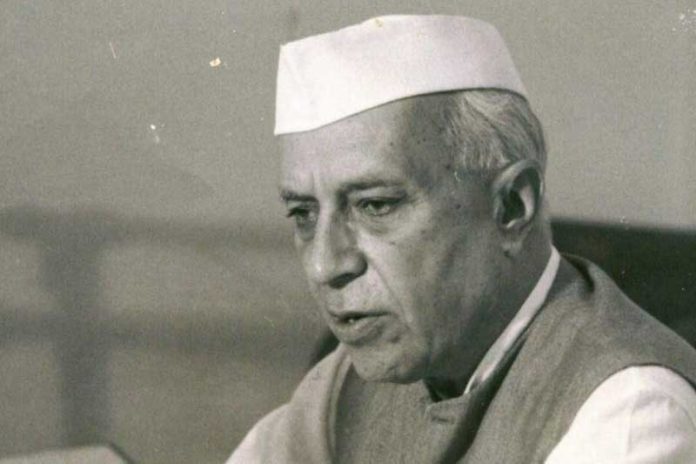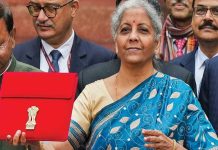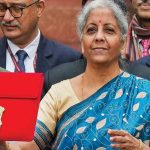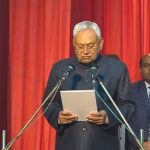Pandit Jawaharlal Nehru, India’s first Prime Minister, also renowned as the “Father of Modern India”, played a critical role in molding the country’s prosperity and development. From his relentless efforts in the fight for freedom to his visionary leadership as India’s first Prime Minister, Nehru always aimed to propel the country to the global scene and build the groundwork for its future growth. This article goes deeper into Nehru’s remarkable contributions to India’s progress and shed light on his long-term influence, from his emphasis on education and industrialization to his role in championing democratic principles, and examines how Nehru’s policies and ideologies shaped India’s future.
Early Life and Ideological Evolution
Pandit Jawaharlal Nehru, born on November 14, 1889, in Allahabad, grew up in a patriotic atmosphere. From an early age, Jawaharlal Nehru was influenced by his father, Motilal Nehru, a distinguished lawyer and politician, as well as other heroes of the Indian freedom struggle. His schooling at famous schools in India and abroad, including Harrow and Cambridge, introduced him to a wide range of beliefs; however, it was during his time in England that Nehru was most inspired by socialist views, that helped shape his vision for a society with equal opportunity. Nehru’s vision for India was based on the concepts of social equality, economic progress, and a scientific mindset, and he believed that a modern, industrialized India was key to the betterment of its citizens and the country as a whole. Emphasizing the importance of unity and growth, he aimed to create a nation in which every citizen had equal possibilities to thrive.
Leadership in the Freedom Movement
When Nehru returned to India, he devoted completely into Mahatma Gandhi’s liberation fight, and his passionate commitment to India’s independence propelled him to a prominent position within the Indian National Congress. Nehru’s eloquence, brilliance, and unrelenting determination catapulted him to leadership positions, culminating in his selection as President of Congress in 1929. From then, Nehru’s firm belief in a secular and inclusive India paved the way for the country’s identity as a pluralistic society in which people of all religions, languages, and cultures coexist peacefully.
Frist Prime Minister’s Vision: Secularism and Unity in Diversity
Nehru’s commitment to democratic values paved the way for successive generations of leaders to sustain and develop India’s democratic process. Nehru, as India’s first Prime Minister, was instrumental in the development and strengthening of the country’s democratic institutions. He defended the ideals of free speech, press freedom, and the rule of law, allowing India to thrive as the world’s largest democracy. Nehru genuinely thought that secularism and religious tolerance were important elements of a varied country like India, therefore, he tried to create an environment in which people of all religions and cultures could coexist peacefully. In today’s India, the values of unity in diversity that Nehru championed are still being upheld despite with occasional challenges. In fact, secularism is likely to be his most lasting contribution to India.
Implementing Five-Year Plans
To promote systematic and balanced economic development, Nehru introduced the Five-Year Plans concept. These plans set detailed economic targets and prioritized major areas such as agriculture, infrastructure, and industry, laying the groundwork for India’s economic growth and development in the next decades. Nehru’s policies attempted to transform India from an agrarian economy to a more industrialized one, recognizing the importance of industrialization in attaining economic growth and decreasing poverty. His government implemented a number of steps to stimulate industrial growth, including the formation of public-sector businesses and the Industrial Policy Resolution in 1948. These efforts set up the foundation for the growth of vital industries including steel, mining, and manufacturing. Under his leadership, institutions such as the IITs, AIIMs, and the ISRO were also established to promote scientific research and technical growth.
Promoting the Public Sector
Nehru promoted the formation and growth of the public sector. He was certain that public enterprises will play an important role in economic development and national self-reliance. This led in the formation of well-known public-sector enterprises such as Steel Authority of India (SAIL) and Bharat Heavy Electricals Limited (BHEL). Nehru’s emphasis on a mixed economy, merging state intervention with private sector, and the construction of renowned educational institutions demonstrated his dedication to creating a competent workforce and technical advancement.
Establishing Premiere Educational Institutions
Recognizing the significance of giving everyone equal opportunity, Nehru enacted measures to encourage universal primary education. This emphasis on basic education created the groundwork for India’s trained workforce, supporting economic progress and social development. Nehru also acknowledged the importance of higher education and a scientific mindset in the nation’s overall growth, emphasizing the need to cultivate a scientifically inclined culture that would harness the power of information for advancement. Nehru’s major accomplishments included the construction of prominent educational institutions such as the Indian Institutes of Technology (IITs) in 1950 and the All India Institute of Medical Sciences (AIIMS) in June 1956 in New Delhi. These educational institutions not only created a pool of skilled professionals, but they also established India as a global leader in academic achievement. Furthermore, Nehru proposed for an extensive schooling system that emphasized critical thinking, creativity, and a broad understanding of various subjects, believing that education should not only provide students with a means of obtaining employment, but should also foster holistic growth and an inquisitive mindset.
Support for Scientific Infrastructure for Research and Development
Nehru was a great supporter of a scientific mindset and its incorporation into the educational system, as well as research and development in a variety of sectors supported creativity and technological improvement. This emphasis on scientific inquiry enabled India to make great advances in scientific research and development. Recognizing the importance of research and development (R&D) in driving innovation and technological advancements, Nehru made significant investments in this area, establishing the Council of Scientific and Industrial Research (CSIR) in 1942 and the Atomic Energy Commission (AEC) in 1948. Nehru also aimed to make India a leader in scientific discovery and technological advancements, and his emphasis on R&D paved the way for the formation of scientific institutions such as the Indian Space Research Organization (ISRO) and the Defense Research and Development Organization (DRDO) which have played critical roles in India’s space exploration and defense technology, respectively.
Initiating Industrialization and Infrastructure Development
After India attained independence in 1947, Nehru, as the country’s first Prime Minister, had the enormous challenge of nation-building. He focused economic development through industrialization and emphasized self-sufficiency. Under Nehru’s leadership, infrastructure development gained substantial attention, and projects such as the Bhakra Nangal Dam and the construction of Irrigation Networks resulted in increased agricultural productivity and rural livelihoods. The construction of dams, highways, and ports improved transportation and connection, allowing for more trade and economic expansion. While the current BJP regime has criticized his programs for several limits, they have established the groundwork for a mixed economy in which the public sector plays an important role in critical industries.
Agricultural Reforms and Rural Development
Recognizing India’s agrarian economy, Nehru implemented a variety of agricultural reforms to boost output and assure food security. His government implemented laws that provided farmers with access to loans, fertilizers, and improved farming practices, and the Green Revolution, which began in the 1960s, was a direct outcome of agricultural reforms implemented under Nehru’s term. Through the implementation of Land Reforms and irrigation projects, he hoped to boost agricultural productivity, better farmers’ lives, and assist India attain food security, making the agricultural sector a driving force behind economic success. Nehru’s focus on rural development went beyond agriculture, with the goal of improving rural life and bridging the urban-rural gap. His administration promoted rural electrification projects, formed cooperatives to support rural industries, and stressed the significance of developing a strong and sustainable rural infrastructure.
Women’s Empowerment and Gender Equality
Furthermore, during his tenure as Prime Minister, Nehru fought for social changes and women’s rights, aiming to establish a more egalitarian society. He encouraged for women’s emancipation and was involved in the formulation of the Hindu Code Bill, which sought to reform and modernize Hindu personal laws. The legislation aimed to give women more rights in marriage, divorce, and property, challenging strongly entrenched patriarchal conventions. His emphasis on gender equality and women’s empowerment was reflected in policies encouraging women’s education and participation in numerous fields. He was influential in creating organizations such as the All India Women’s Conference and the National Federation of Indian Women. Through these organizations, he advocated for women’s education, employment prospects, and active engagement in social and political affairs. Furthermore, Nehru fostered women’s education and active participation in different spheres such as politics, science, and the arts, laying the groundwork for India’s future female leaders and contributing to the progressive elimination of gender gaps.
Empowering the Marginalized and Healthcare Development
Nehru’s vision of India’s development went beyond economic prosperity. He realized the value of social reform and worked to create a more democratic and inclusive society. Nehru’s leadership aimed to elevate neglected populations by fostering social justice and equality. He implemented affirmative action programs such as reservation in educational institutions and government positions to provide representation and opportunities for underrepresented groups of society. These measures sought to overcome socioeconomic gaps and foster inclusivity. Nehru also emphasized on healthcare which created the groundwork for India’s healthcare system, resulting in a healthier populace. Nehru understood the importance of healthcare and public health in promoting the nation’s well-being and prioritized the building of public healthcare infrastructure, which resulted in the formation of institutions such as All India Institute of Medical Sciences (AIIMS).
Foreign Policy and Global Leadership
Nehru’s leadership went beyond India’s boundaries, because his dedication to non-alignment throughout the Cold War period was extremely important. He envisioned India as a leader among newly independent states, arguing for a foreign strategy free of major power blocs. Nehru’s role in the Non-Aligned Movement (NAM) solidified India’s status as a leader among newly independent countries and a spokesperson for the Global South.
Legacy that still continues to shape India’s future
As we discuss current issues and construct the future, Nehru’s legacy serves as a reminder of the importance of vision, leadership, and inclusive growth. In essence, Jawaharlal Nehru’s multifarious achievements and vision for a free, affluent India distinguish him among the nation’s architects. His relentless efforts to construct a nation based on democratic values, economic prosperity, and social equality are reflected in India’s path to become a worldwide power. From his emphasis on education and industrialization to his devotion to social equality, Nehru’s vision molded India’s success and continues to inspire future generations, reminding us of the potential of unity and progress. Let us honor his legacy by working towards achieving his vision of a wealthy, enlightened, and unified India by joining Bharat Jodo Nyay Yatra.










